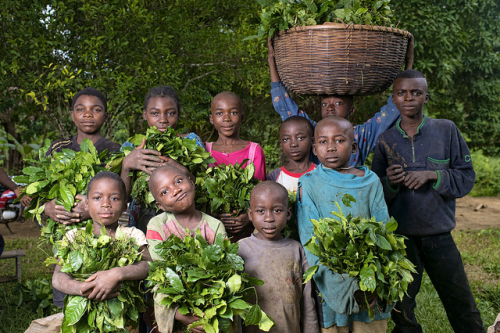 BOGOR, Indonesia — Despite sustained interest in agriculture- and forest-based livelihoods among young people in tropical regions, their voice has yet to be heard in land management structures, scientists and youth representatives say.
BOGOR, Indonesia — Despite sustained interest in agriculture- and forest-based livelihoods among young people in tropical regions, their voice has yet to be heard in land management structures, scientists and youth representatives say.
“The development agenda of African countries is to put youth at the center, including in agriculture,” said Denis Sonwa, a senior scientist at the Center for International Forestry Research (CIFOR) in Yaoundé, Cameroon.


 African citizens join the continent’s top musicians, hundreds of CSOs, and ONE.org to ask leaders to invest more and better in agriculture
African citizens join the continent’s top musicians, hundreds of CSOs, and ONE.org to ask leaders to invest more and better in agriculture In November 2013, Gerald Otim of
In November 2013, Gerald Otim of 
 With great excitement, I, together with my six colleagues, flied to attend the
With great excitement, I, together with my six colleagues, flied to attend the  Have you tried the
Have you tried the